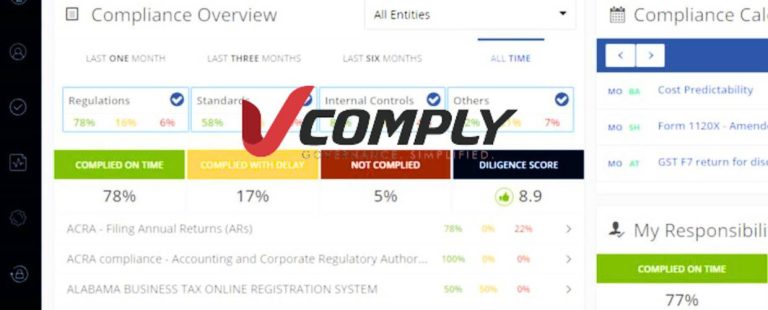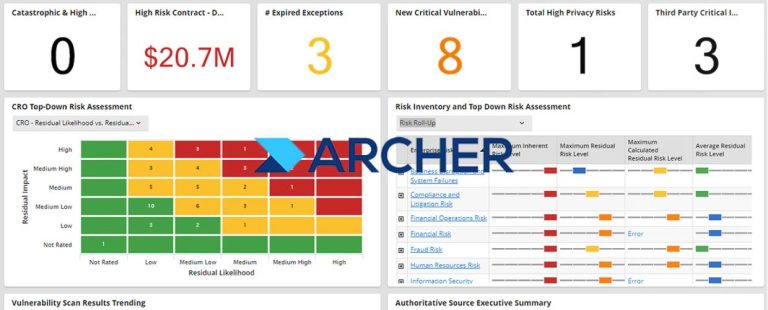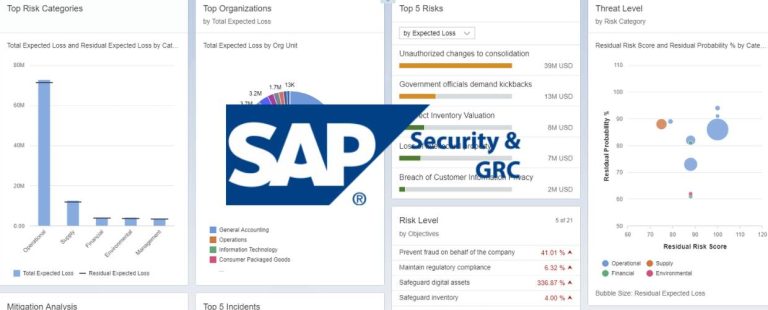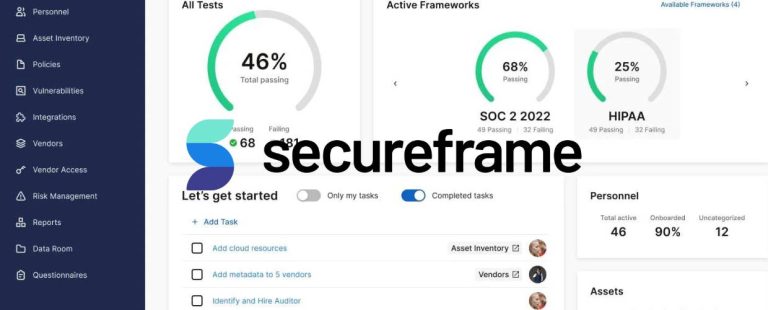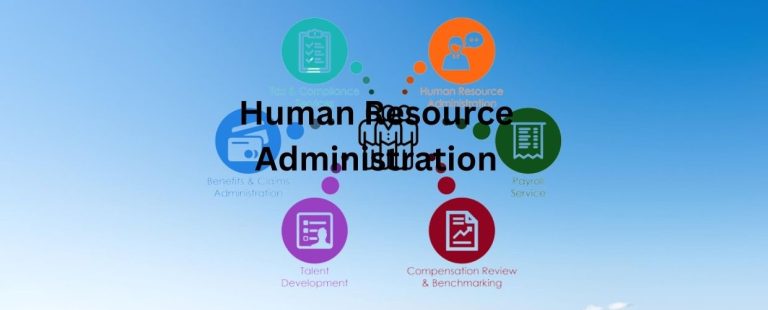Maintaining strong and lasting customer relationships is paramount in today’s fast-paced and customer-centric business landscape. Customer Relationship Management (CRM) has emerged as a strategic approach that empowers organizations to achieve this goal. CRM software, a cornerstone of modern business operations, comprises a network of interconnected modules, each catering to specific facets of customer engagement and management. These CRM modules revolutionize processes, enhance data organization, and offer a panoramic view of customers, resulting in amplified customer satisfaction and sustainable business growth. This article delves deeper into CRM modules’ critical role, key functionalities, and their transformative impact on contemporary customer-focused enterprises.
The Significance of CRM Modules
The pivotal role played by CRM modules within a CRM software ecosystem cannot be overstated. Here are the key reasons why CRM modules are of paramount importance.
Holistic Customer View
CRM modules seamlessly amalgamate customer interactions, preferences, and historical data, thus paving the way for customized and personalized customer experiences. This comprehensive understanding fosters meaningful interactions and deepens customer relationships. In a world where customers expect personalized and tailored experiences, CRM modules are vital in providing a holistic view of each customer. CRM modules create a unified profile that captures the customer’s journey and preferences by consolidating data from various touchpoints, including sales, marketing, and customer service interactions. With this comprehensive insight, organizations can engage customers in more relevant and meaningful ways, anticipating their needs and delivering personalized solutions that resonate.
Streamlined Business Processes
By tailoring specific modules to distinct customer management aspects, CRM systems facilitate streamlined operations, heighten efficiency, and optimize time utilization. This modular approach enhances the overall effectiveness of the business. CRM modules bring order and efficiency to complex business processes. Each module focuses on customer relationship management, allowing teams to work collaboratively without duplicating efforts. Sales teams, for instance, can seamlessly manage leads and opportunities through the sales automation module, ensuring a clear and structured pipeline. Marketing teams leverage the marketing automation module to execute targeted campaigns, automating lead nurturing and segmentation processes. This streamlined approach minimizes manual tasks, reduces the risk of errors, and accelerates decision-making, resulting in a more agile and responsive organization.
Data Management and Organization
CRM modules provide an organized structure for customer data, ensuring ready access and accuracy across all functional teams. This central repository reduces redundancies, minimizes errors, and improves collaboration. Efficient data management is a cornerstone of effective customer relationship management. CRM modules establish a centralized repository where authorized users across departments store, update, and access customer data. It ensures data accuracy and consistency, eliminating the need for disparate spreadsheets or isolated databases. Moreover, robust data organization enables teams to collaborate seamlessly. For example, marketing can tailor campaigns based on sales insights, and customer service agents can access complete customer histories for faster issue resolution. This integration enhances cross-functional collaboration, breaks down data silos, and empowers teams to make informed decisions based on a unified customer view.
Enhanced Customer Service
CRM modules empower customer service interactions through seamless integration, resulting in quicker response times and expedited issue resolution. Agents can access relevant information promptly, leading to elevated customer satisfaction. Customer service is a critical touchpoint in the customer journey, and CRM modules play a crucial role in enhancing this aspect. The customer service module equips agents with a comprehensive view of customer interactions, allowing them to address inquiries, resolve issues, and provide personalized support more effectively. The agent can access historical data, previous interactions, and relevant purchase details when a customer seeks assistance, enabling a seamless and informed conversation. It speeds up issue resolution and enhances the customer’s experience, as they feel valued and understood by the organization.
Key CRM Modules and Their Functionalities
When it comes to managing customer relationships, several key CRM modules and their functionalities can make all the difference. One such module is the sales module, which allows businesses to track leads, manage deals, and forecast revenue.
Sales Automation Module
The sales automation module revolutionizes the sales process by automating lead management, tracking opportunities, and monitoring the sales pipeline. It furnishes valuable insights into sales performance, forecasts, and customer interactions, empowering sales teams to maximize deal closures. The sales automation module empowers sales teams to work efficiently and strategically. It starts with lead management, where incoming leads are captured, categorized, and assigned to the appropriate sales representative. As the leader progresses through the sales cycle, the module tracks interactions, records communications, and updates the pipeline status. This real-time visibility into the sales process enables sales managers to make informed decisions, allocate resources effectively, and identify potential bottlenecks. Moreover, data analytics within the module offers insights into sales trends, allowing teams to refine their strategies and target high-potential opportunities.
Marketing Automation Module
The marketing automation module orchestrates marketing campaigns, nurtures leads, and segments customers intelligently. It captures and analyzes customer behavior, evaluates campaign efficacy, and delivers precisely targeted marketing content to the intended audience. The marketing automation module transforms how organizations engage with their target audience. It enables marketers to create and execute multi-channel campaigns, from email marketing to social media promotions. The module generates insights into individual preferences by capturing customer interactions and behaviors, such as website visits and content engagement. This data-driven approach allows marketers to segment customers based on their interests and behaviors, tailoring messages that resonate with specific segments. Automation streamlines lead nurturing, ensuring that prospects receive relevant content at the right time, ultimately increasing the likelihood of conversion. Additionally, the module provides analytics that measures campaign effectiveness, helping marketers refine their strategies and optimize their marketing efforts.
Customer Service Module
The customer service module manages customer inquiries, complaints, and support requests. It meticulously tracks customer interactions, allocates tickets to agents, and facilitates seamless communication, expediting efficient issue resolution. The customer service module serves as the backbone of exceptional customer support. When customers require assistance, whether through phone, email, or chat, the module creates a ticket that captures the details of the inquiry, these tickets are then routed to the appropriate agent, ensuring timely and efficient resolution. The module records interactions, enabling agents to pick up where the conversation left off and preventing customers from repeating their issues. Additionally, the module can integrate with knowledge bases and self-service portals, empowering customers to find answers to common questions independently. This self-service option enhances the customer experience and reduces the volume of incoming inquiries, allowing agents to focus on more complex cases.
Analytics and Reporting Module
The analytics and reporting module amalgamates data from diverse CRM modules and generates exhaustive reports and interactive dashboards. These resources yield valuable insights into customer trends, sales performance, and marketing effectiveness, facilitating informed decision-making. The analytics and reporting module transforms raw data into actionable insights. The module creates a comprehensive view of organizational performance by aggregating data from various CRM modules, such as sales, marketing, and customer service. Customizable reports and dashboards visualize vital metrics, allowing stakeholders to monitor trends, track KPIs, and identify areas for improvement. For example, sales leaders can assess pipeline health, conversion rates, and revenue forecasts, while marketing teams can evaluate campaign ROI and customer engagement metrics. This data-driven approach empowers decision-makers to make informed choices, optimize strategies, and allocate resources effectively, fostering a culture of continuous improvement.
Social Media Module
The social media module equips organizations to monitor and engage with customers across various social media platforms. It serves as a sentinel for brand sentiment, permits real-time responses to customer feedback, and detects potential opportunities or issues in the digital realm. In the digital age, social media has become a pivotal channel for customer interactions, and the social media module facilitates organizations’ engagement with customers on these platforms. The module enables businesses to monitor mentions, comments, and conversations related to their brand across social media channels. Organizations can tailor their responses and engage with customers in real-time by analyzing sentiment and identifying trending topics. Moreover, the module provides insights into customer sentiment, allowing organizations to proactively address issues, manage crises, and seize opportunities for positive engagement. This proactive approach enhances brand reputation and strengthens customer relationships by demonstrating responsiveness and attentiveness.
E-commerce Module
The e-commerce module seamlessly melds CRM data with online sales platforms, enabling organizations to monitor customer purchases, manage orders, and curate personalized shopping experiences that resonate with individual preferences. The e-commerce module transforms how organizations manage online transactions and customer interactions. By integrating CRM data with e-commerce platforms, organizations gain a holistic view of customer purchasing behavior. The module captures customer orders, preferences, and purchase histories, enabling personalized marketing and upselling opportunities. For instance, the module can trigger targeted promotions or recommendations for related items if a customer frequently purchases a particular product. Additionally, the module automates order processing, updates inventory levels, and facilitates seamless order tracking. This end-to-end integration streamlines the customer journey, enhances order accuracy, and fosters customer loyalty by delivering a consistent and convenient shopping experience.
Transformative Impact of CRM Modules
The transformative impact of CRM modules cannot be understated. Businesses can enhance customer experiences, forecast revenue, and manage support inquiries by utilizing the sales, marketing, and customer service modules.
Improved Customer Engagement
CRM modules enable organizations to forge genuine connections with customers, culminating in bespoke experiences that nurture loyalty and amplify satisfaction. The collective impact of CRM modules on customer engagement is transformative. By harnessing data from various touchpoints, organizations create a comprehensive customer profile that informs personalized interactions. For instance, a sales representative armed with insights from the sales automation module can tailor their pitch to address a prospect’s specific needs and pain points, creating a more meaningful conversation. Similarly, marketing teams using the marketing automation module can send targeted content to different customer segments, ensuring customers receive messages that resonate with their interests. This level of personalization fosters stronger emotional connections, builds trust, and cultivates lasting relationships that extend beyond transactions.
Data-Driven Decision-Making
The analytic and reporting modules furnish indispensable insights for data-centric decision-making, thus enriching strategic planning and optimizing resource allocation. Data-driven decision-making is the cornerstone of effective business strategies, and CRM modules provide the necessary insights for informed choices. The analytics and reporting module generates visualizations and reports that distill complex data into actionable insights. These insights guide leaders in understanding customer behaviors, identifying emerging trends, and assessing the effectiveness of marketing campaigns. For instance, the module might reveal that a specific marketing campaign resulted in a higher conversion rate among a particular demographic. With this information, organizations can allocate resources more effectively, tailor marketing strategies to target similar demographics, and optimize their return on investment. This analytical approach minimizes guesswork, enables proactive problem-solving, and empowers organizations to make strategic decisions confidently.
Sales and Revenue Growth
Sales and marketing automation modules synergize operations, resulting in heightened lead conversion rates and revenue expansion. The synergy between sales and marketing automation modules catalyzes sales growth. The sales automation module optimizes lead management, ensuring qualified leads are promptly and effectively nurtured. This streamlined process reduces lead leakage and increases the likelihood of conversions. When coupled with the marketing automation module, the impact is magnified. Marketing campaigns are strategically designed to engage at different stages of the buying journey, nurturing them with relevant content and guiding them toward a purchase decision. Organizations can identify sales-ready leads by tracking engagement and analyzing behavior, and seamlessly transfer them to the sales team. This seamless alignment between sales and marketing drives efficiency, shortens the sales cycle, and contributes to revenue expansion.
Enhanced Customer Retention
Customer service modules expedite issue resolution, playing a pivotal role in augmenting customer retention rates, thus fortifying the customer base. The customer service module serves as a linchpin in customer retention efforts. Swift and effective issue resolution is a fundamental driver of customer satisfaction and loyalty. When organizations leverage the customer service module to promptly address customer inquiries and concerns, customers feel valued and supported. Agents with historical data from previous interactions can provide context-sensitive support, reducing frustration and enhancing the customer experience. Furthermore, proactive engagement through the social media module and personalized recommendations through the e-commerce module contributes to a sense of personalized care. This comprehensive approach fosters a strong bond between customers and the organization, resulting in higher retention rates, reduced churn, and an expanding base of loyal advocates.
Conclusion
CRM modules serve as the bedrock upon which a customer-centric CRM system thrives. Through the fusion of customer data and process optimization across diverse departments, CRM modules empower organizations to elevate customer engagement, propel sales, and promote overall business performance. The intricate interplay between sales automation, marketing automation, customer service, analytics, social media, and e-commerce modules establishes a potent CRM ecosystem, positioning enterprises advantageously in the dynamic market landscape. As enterprises increasingly acknowledge the transformative potential of CRM modules, they chart a course toward sustained growth, enduring customer loyalty, and relentless innovation.
In embracing CRM modules as a pivotal facet of an integrated CRM strategy, businesses evolve into customer-focused juggernauts, nurturing enduring relationships and steering business triumph in the era of empowered customers. This strategic alignment with CRM modules heralds a future laden with perpetual growth, unwavering customer allegiance, and a perpetually vibrant business trajectory.


